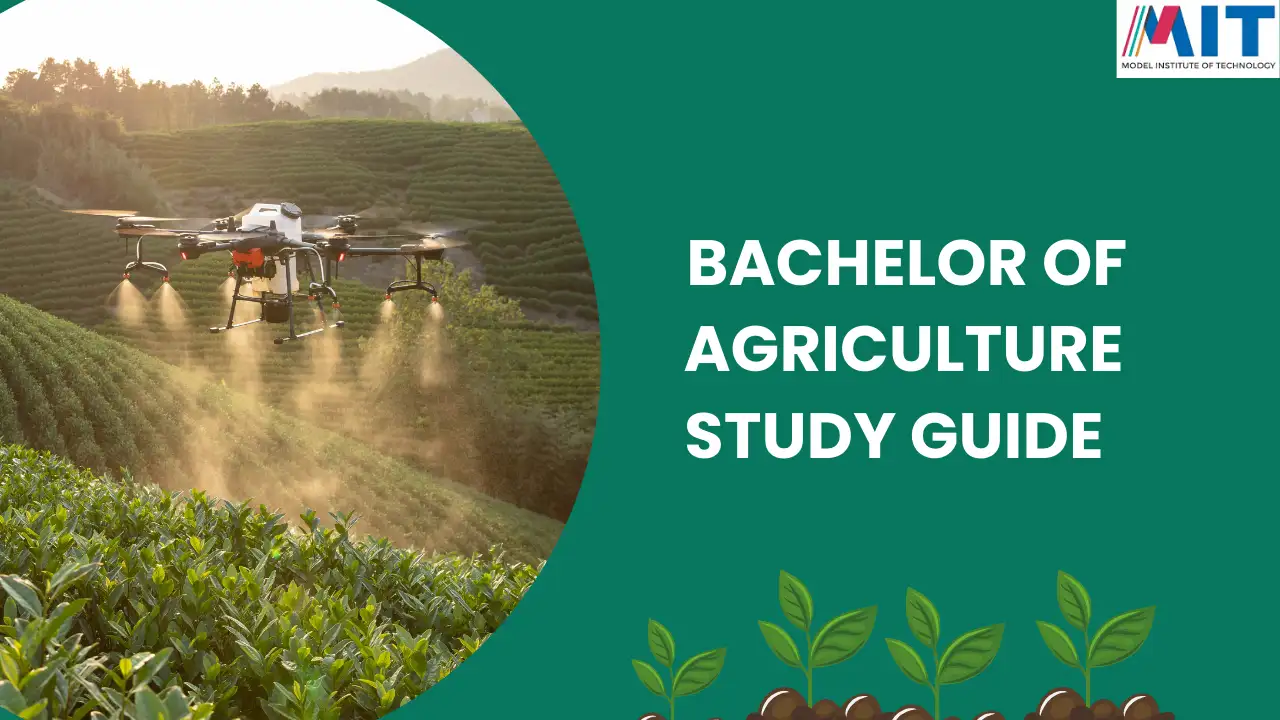
July, 29, 2025
MIT Nepal
Bachelor of Science in Agriculture (BSc. Agriculture) is a four-year undergraduate program that provides a comprehensive education in the scientific principles and applications related to agriculture.
The course is interdisciplinary as it draws principles from fields including natural sciences like biology, chemistry, and even social sciences like Economics and Business Management.
In Nepal, this program is designed to equip students with the scientific knowledge and practical skills necessary to contribute to the modernization and sustainability of agriculture and sustainability of the agricultural sector in the country.
Learn Why Sustainability Matters in Business: A Must-Read for MBA Graduates
Several universities in Nepal offer the BSc Agriculture program, including:
Course Overview
The curriculum is comprehensive and covers a wide array of subjects, often including:
Read more on Career Paths in Data Science for BIT Graduates: What You Need to Know.
Practical Orientation
The practical orientation in this program is designed to bridge the gap between theoretical knowledge and real-world application.
This section ensures that graduates are not just academically sound but also capable of applying those theories to solve practical problems that are faced in the field.
The main objective is to provide hands-on experience with scientific instruments, techniques, and experiments relevant to various agricultural disciplines.
The main objective is to expose students to diverse farming systems, agribusiness, and other research areas related to agriculture.
The main objective is to provide students with professional experience in an agricultural organization, NGOs, or Governmental departments.
This section is more formal and lasts for a longer duration, often in the later semester of the program.
In later years, often in the final year, students undertake research projects that culminate in a thesis requiring students to identify and study a problem, and later present their findings.
Duration: 4 years / 8 semesters
Admission Process
Eligibility
Online Application
All universities require filling out an online application form via their respective admission portals.
Required documents
Learn Why Sustainability Matters in Business: A Must-Read for MBA Graduates
Every university that offers the BSc. Agriculture has its own entrance exam to select its candidates.
Common aspects of BSc. Agriculture Entrance Exams in Nepal are as follows:
Core subjects tested in the BSc. Entrance Exams are:
1. Master 10+2 Syllabus
Go through your 10+2 concepts of Physics, Chemistry, Biology, and English.
2. Practice MCQs:
Take help from as many past papers and model questions as possible.
This helps you understand the exam structure and refines your knowledge of the question patterns.
3. Time Management
Limit your time while in your practice session.
This will prepare you for the time pressure during the examinations.
4. Addressing your weak areas
If you are not confident about your capability in any subjects, focus on improving those subjects or topics that you find difficult.
5. Stay updated
Check the university’s website for their exact syllabus, form submission deadline, or any changes that might occur later throughout your exam period.
BSc Agriculture equips students with scientific theoretical knowledge and practical skills crucial for enhancing farming techniques and production that contribute to rural development.
Although Agriculture contributes highly when it comes to Nepal’s economy, the global and national economic landscape is rapidly diversifying, mostly in the sectors of business and technology.
Read more on Global Business Strategies: How MBA Graduates Can Lead in International Markets.
BSc. Agriculture is an essential program in Nepal, offering students theoretical knowledge and practical skills to enhance farming techniques, improve productivity, and contribute to rural development.
Agriculture remains a cornerstone of Nepal’s economy, but the skills gained from this degree also open doors to opportunities in research, agribusiness, environmental conservation, and policy-making.
For students passionate about sustainable development and food security, this course provides a strong foundation for a meaningful career.